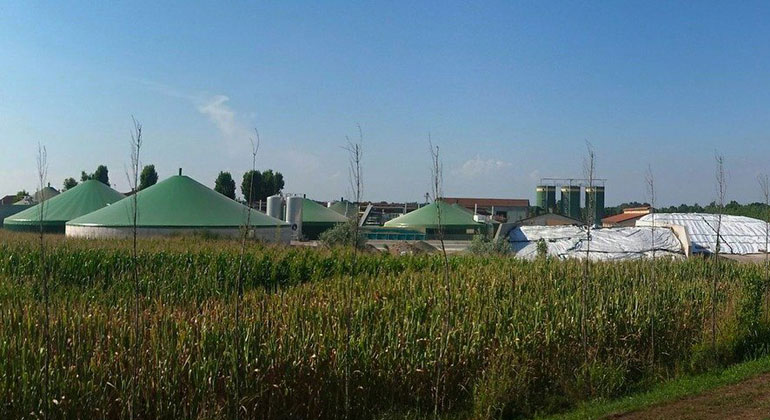Pilot plant for renewable hydrogen
New technology to reduce carbon dioxide emissions by up to 40 percent.
A pilot plant for the production of hydrogen from biogas is to be built in Bavaria. It is based on a new technology that is expected to drastically reduce the energy required for the production of hydrogen compared to conventional technologies. This will be achieved by integrating resistive heating into the chemical reactor. The technical development and practical realization of this approach are the goals of the EReTech project, which is funded by the EU and coordinated by the Technical University of Munich (TUM).
The German government has set itself the goal of becoming greenhouse gas neutral by 2045. To achieve this goal, energy-intensive production processes in the chemical industry – such as those used to produce hydrogen – are to be replaced by new, sustainable and carbon-neutral processes. Within the EU project Electrified Reactor Technology (EReTech), 14 partners from science and industry in Bavaria are implementing a hydrogen plant that is powered by electricity from renewable energy sources. The hydrogen is obtained from biogas.
The plant is being built near Eichstätt and will supply 130 tons of hydrogen per year. This will be used for hydrogen filling stations, for example. Completion is planned for 2025.
40 percent less carbon dioxide emissions
“Until now, the energy for processes in the chemical industry has been provided by combustion outside the actual reactor,” explains Prof. Johannes Lercher from the Chair of Technical Chemistry II at TUM and head of the EReTech project. Combustion with air produces carbon dioxide in a highly diluted form; it also requires significantly more energy due to heat transfer losses. “Instead of combustion heat, we use electric resistive heating inside the reactors in the EreTech project.”
The start-up SYPOX is playing a major role in the implementation of the plant. The company was founded at TUM and specializes in electrically-heated chemical reactors that convert biogas into hydrogen in a carbon neutral way. “With the help of the new technology, we can reduce carbon dioxide emissions by up to 40 percent compared to the traditional process without reducing productivity,” explains Dr. Gianluca Pauletto of SYPOX.
Technical development requires testing under extreme conditions
In addition to the plant in Bavaria, a test reactor is being built in Geleen, the Netherlands, to investigate the resilience of the new technology for a wide range of applications in an industrial environment. “This installation will provide us with critical information and process data for further scale-up of the technology. It will also enable us to offer solutions for the chemical industry in the future, addressing chemical reactions that require high energy input,” explains Pauletto.
More information:
- The EReTech project involves 14 partners from industry, research institutes and universities from Germany, the Netherlands, Italy, Greece, Belgium, France, Switzerland and Sweden. It is funded through the Horizon Europe Framework Program (HORIZON) with a total budget of 9.7 million euros. The project will start in June 2022 and will last for a total of 42 months.
- Research Partners are: Technical University of Munich, European Research Institute of Catalysis a.i.s.b.l., Politecnico di Milano, Ethniko Kentro Erevnas Kai Technologikis Anaptyxis, Bayerngas GmbH, Università degli Studi di Padova, Linde GmbH, HyGear Technology and Services BV, Bureau Veritas Exploitation, Chemelot Research Facilities B.V., Josef Kerner Energiewirtschafts-GmbH, Hulteberg Chemitstry and Engineering AB, SYPOX GmbH, Eidgenössische Technische Hochschule Zürich.








